David Tennant as The Doctor. Photo: Disney+.
Now on Disney+ (everywhere outside of the UK, where it aired on the BBC and is on the iPlayer), ‘Doctor Who: The Star Beast’ is the first of three special episodes to celebrate both the venerable science fiction show’s 60th anniversary and its first with a Disney+ budgetary boost.
‘Doctor Who’ first aired on November 23rd, 1963, in the UK and ran fairly consistently (getting through seven lead actors thanks to a crafty storytelling conceit where the alien Time Lord known as The Doctor can “regenerate”, changing their body but retaining their skills and most of their memories) until 1989, when it was cancelled. It briefly returned for a one-off TV movie in 1996 –– a precursor to this latest version, since it featured a bigger budget and American partners –– but then vanished into the darker recesses of the galaxy for around a decade.
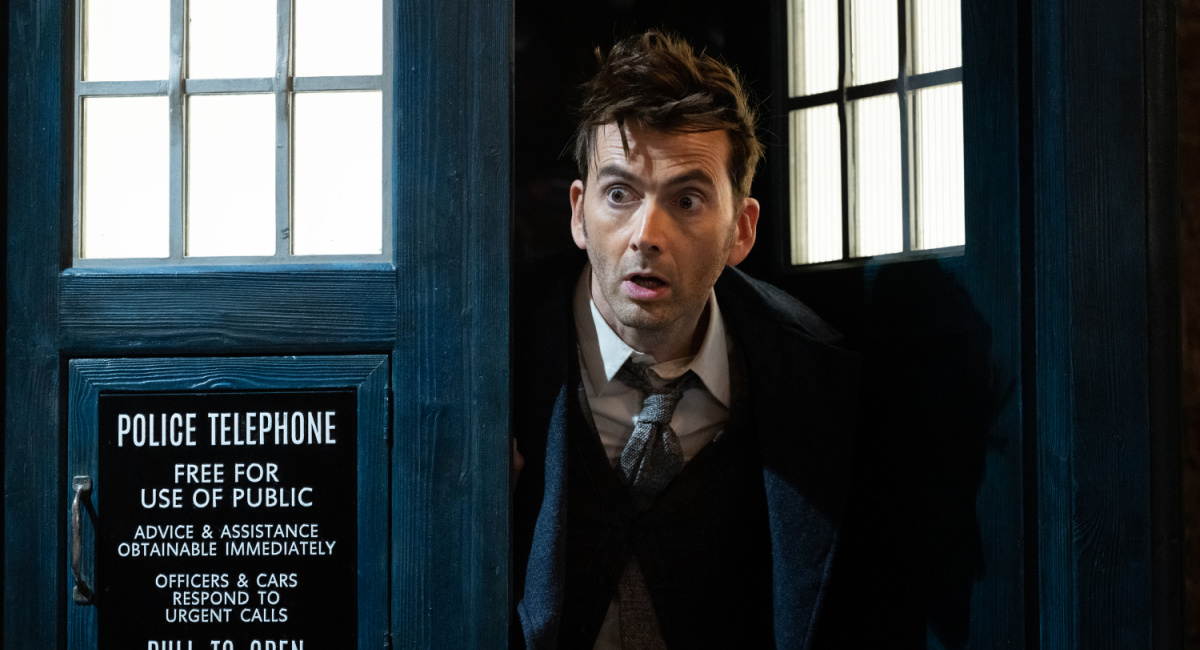
David Tennant as The Doctor on ‘Doctor Who.’ Photo: Disney+.
The 2005 reboot (spearheaded by veteran British showrunner Russell T. Davies) launched it on a more global scale, and the seasons featuring David Tennant in particular drove the series to a bigger following. Now, to mark the show’s latest anniversary, we have a trio of new special episodes.
While there were concerns that the new partners could drag the show in the direction of the TV movie it’s reassuring to report that under the returning Davies, the show maintains what works about the concept while looking better than ever.
What works about ‘Doctor Who: The Star Beast’?
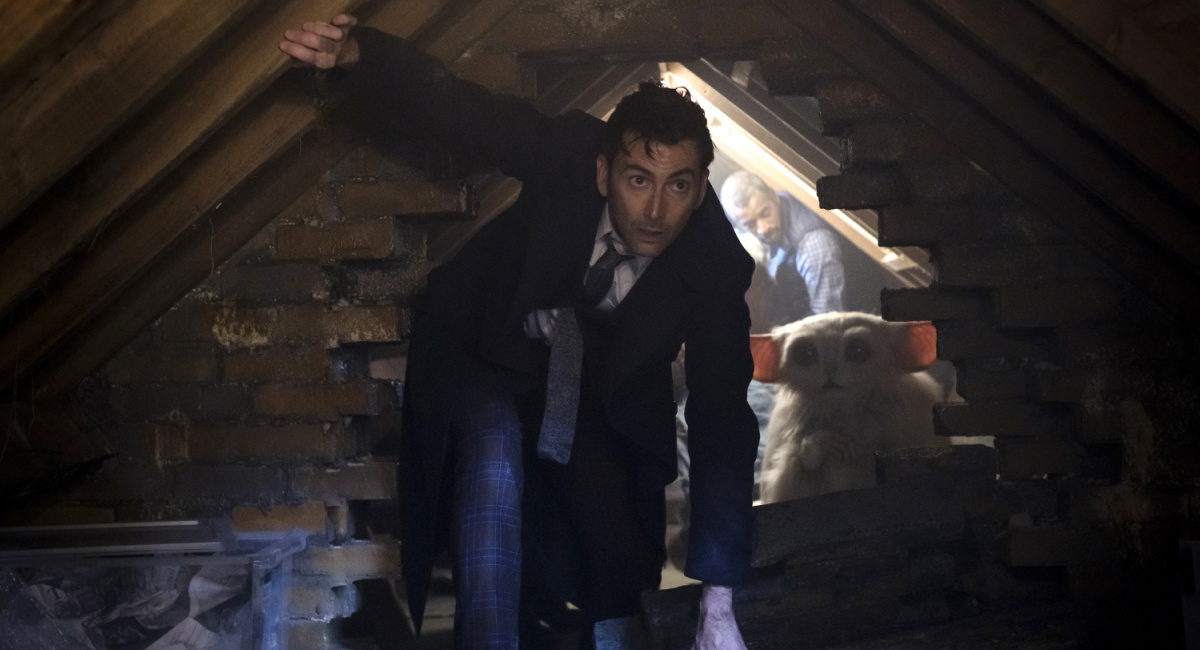
(L to R) David Tennant as The Doctor, The Meep, and Karl Collins as Shaun Temple. Photo: Disney+.
It marks something of a risk to bring ‘Doctor Who’ to as big an audience as Disney+ can provide –– after all, it spent years as a niche science fiction show that (in the States, at least) was mostly limited to late-night screenings on small channels or PBS. But with an assured hand in Davies and the regular production company behind the scenes, and Tennant back (you don’t need to worry too much about why the 14th incarnation of the Doctor looks and sounds like, and knows he used to be, the 10th version, all that will be explained in a future special).
If you’ve never watched an episode, should you start with this one? There are clear indications that the creators are intending this one to walk the tricky line of catching up new viewers while not alienating those who have reams of ‘Who’ knowledge rattling around their heads, and who know their Cybermen from their Daleks.
But if this is your first encounter with the character and the show, you may still want to brush on some history before diving in (either hitting Wikipedia or watching classic episodes via Max). And if you’re a veteran fan, especially one who loved Davies and Tennant’s (and Catherine Tate’s) previous run, then this will feel like a warm reunion, albeit with some much-improved effects.
This is far and away the slickest the show has ever looked, director Rachel Talalay (who has worked on the show before) delivering some stylish visuals and the overall feeling of something that finally has the cash to impress. Scenes with soldiers are filled with troops, whereas before you might have a small group. London street scenes bustle with extras, and spaceships (including the Doctor’s own vessel) are much upgraded.
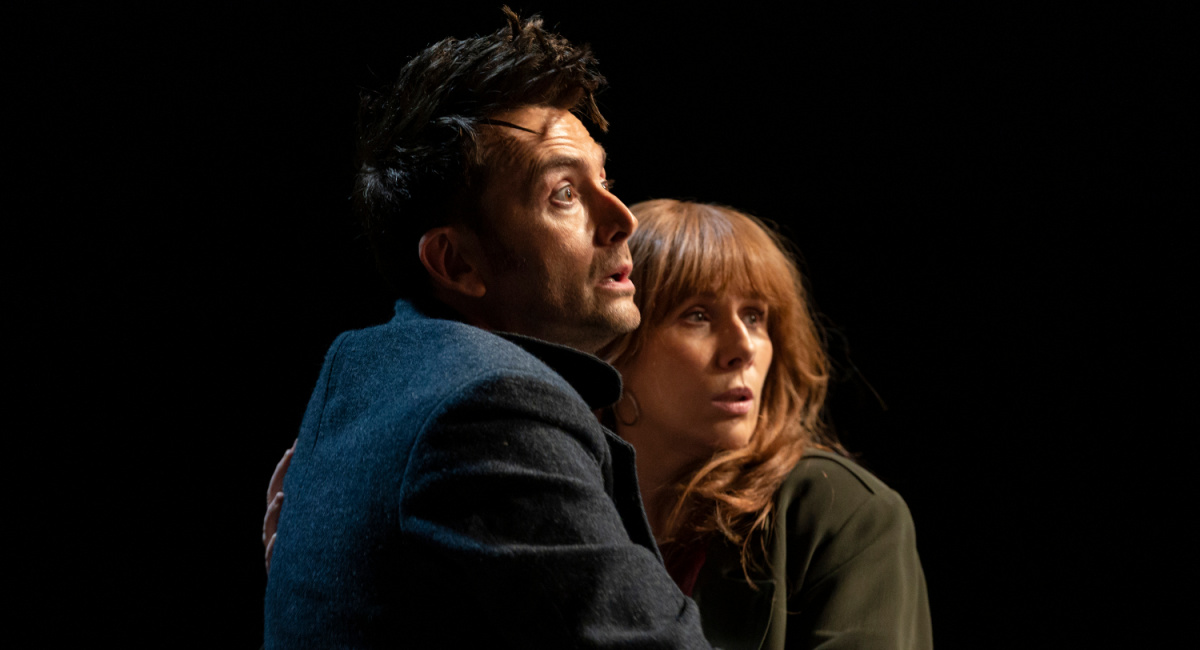
David Tennant as The Doctor and Catherine Tate as Donna Noble on ‘Doctor Who.’ Photo: Disney+.
As he always has been, Tennant is a perfect fit for the role of the Doctor, balancing child-like enthusiasm with centuries-old pathos and anger. He might be playing a genius, two-hearted alien who travels around in a time/spaceship that is bigger on the inside and is disguised as an old British police calling box, but he makes the character feel human and grounded.
As for Tate, who found possibly her best role out of the comedy performances she came up creating, Donna remains very funny, but with her giant heart maintained.
Davies is also to be commended for keeping the show’s essential inclusivity, featuring in this special, a chief scientist who uses a wheelchair and having Donna Noble’s daughter Rose (Yasmin Finney) be trans.
It has come a long way from its 1960s incarnation as a show designed to educate as much as entertain, with a white-haired patrician type lecturing children about Romans while threatening to throw rocks at cavemen, but there is still a healthy dollop of opening young minds to concepts that may escape them at the time but prime them for the future.
Related Article: The 60th Anniversary ‘Doctor Who’ Specials will Arrive on Disney+ starting November 25th
What doesn’t work in ‘Doctor Who: The Star Beast’?
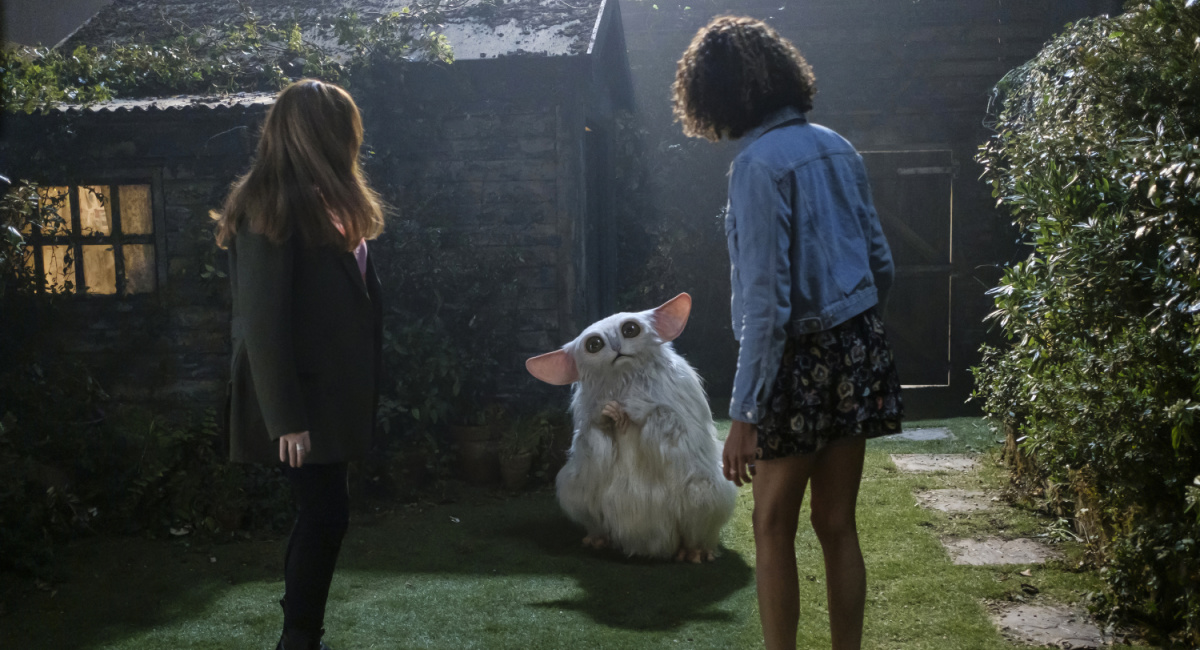
(L to R) Catherine Tate as Donna Noble, The Meep, and Yasmine Finney as Rose. Photo: Disney+.
The show might turn some off; though intended to appeal to the whole family, it does tend to skew younger. It’s still not going to challenge the likes of ‘Foundation’ or the Marvel series for sheer impressive levels of budget and design.
And diving right in will certainly confuse some, who have to wonder what this man in the skinny suit is shouting about. It’s not the easiest concept to get across in an hour, though ‘The Star Beast’ certainly tries.
Finally, for all the boosted budget, there are still moments that look like the cheaper show ‘Doctor Who’ used to be –– some of the creature moments are still decidedly wonky.
‘Doctor Who: The Star Beast’: Final Thoughts
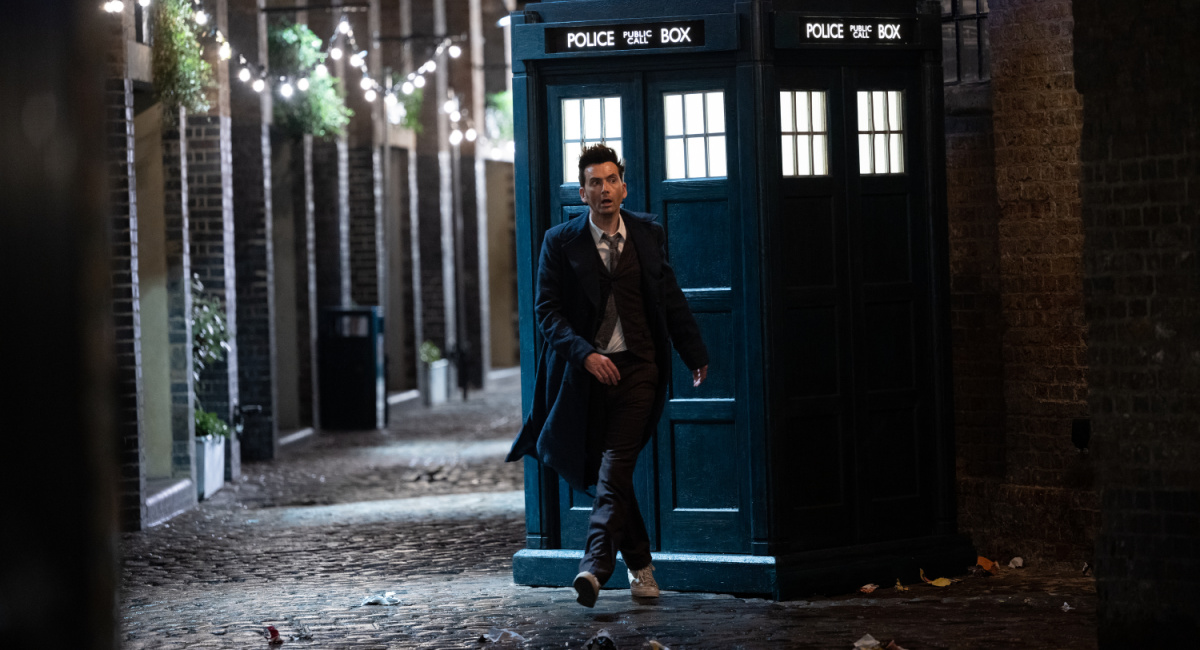
David Tennant as The Doctor. Photo: Disney+.
A welcome, elevated return for a very popular character, this new ‘Doctor Who’ outing is very likely to win a new generation of fans while not alienating experienced viewers.
If you enjoy ‘The Star Beast’, ‘Wild Blue Yonder’ arrives on December 2nd, followed by ‘The Giggle’ on December 9th. And then ‘Doctor Who’ returns for a new season, likely starting on Christmas Day as ‘Sex Education’s Ncuti Gatwa takes over the lead role.
‘Doctor Who: The Star Beast’ receives 8.5 out of 10 stars.
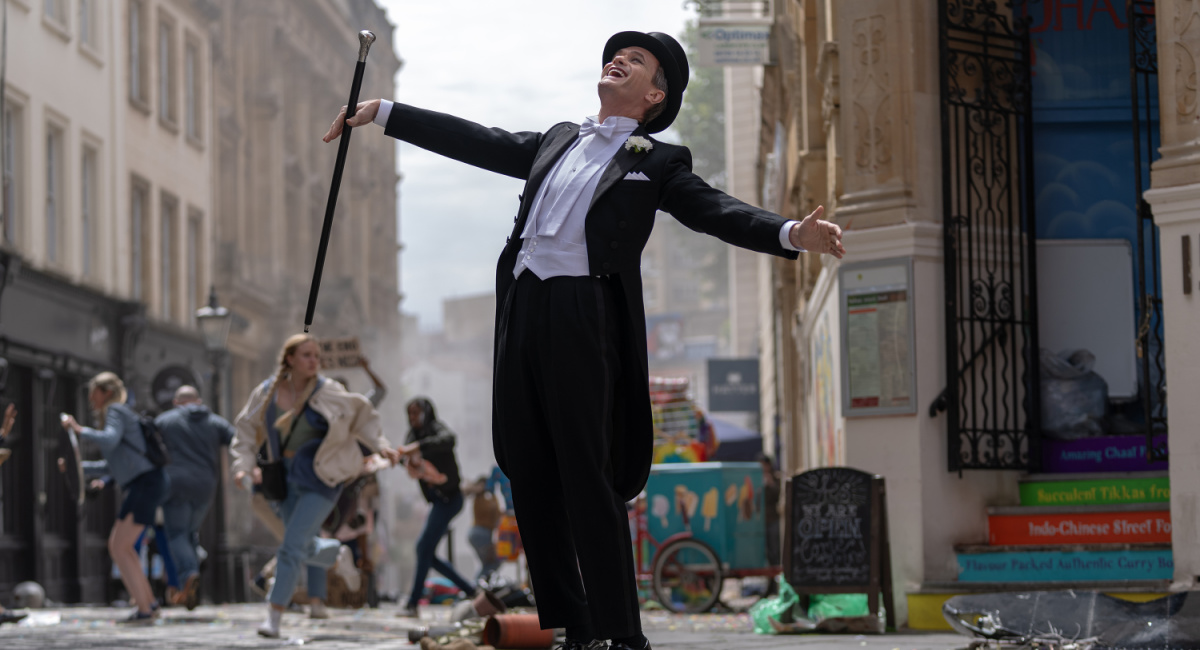
Neil Patrick Harris in ‘Doctor Who.’ Photo: Disney+.
What’s the story of ‘Doctor Who: The Star Beast’?
In the ‘The Star Beast’, The Doctor (David Tennant) is caught in a fight to the death as a spaceship crash-lands on London. But as the battle wreaks havoc, destiny is converging on the Doctor’s old friend, Donna Noble (Catherine Tate).
Who else is in ‘Doctor Who: The Star Beast’?
Around Tennant and Tate, the cast also includes Miriam Margolyes, Yasmin Finney, Matt Green, Jamie Cho, Ruth Madeley and Jacqueline King.
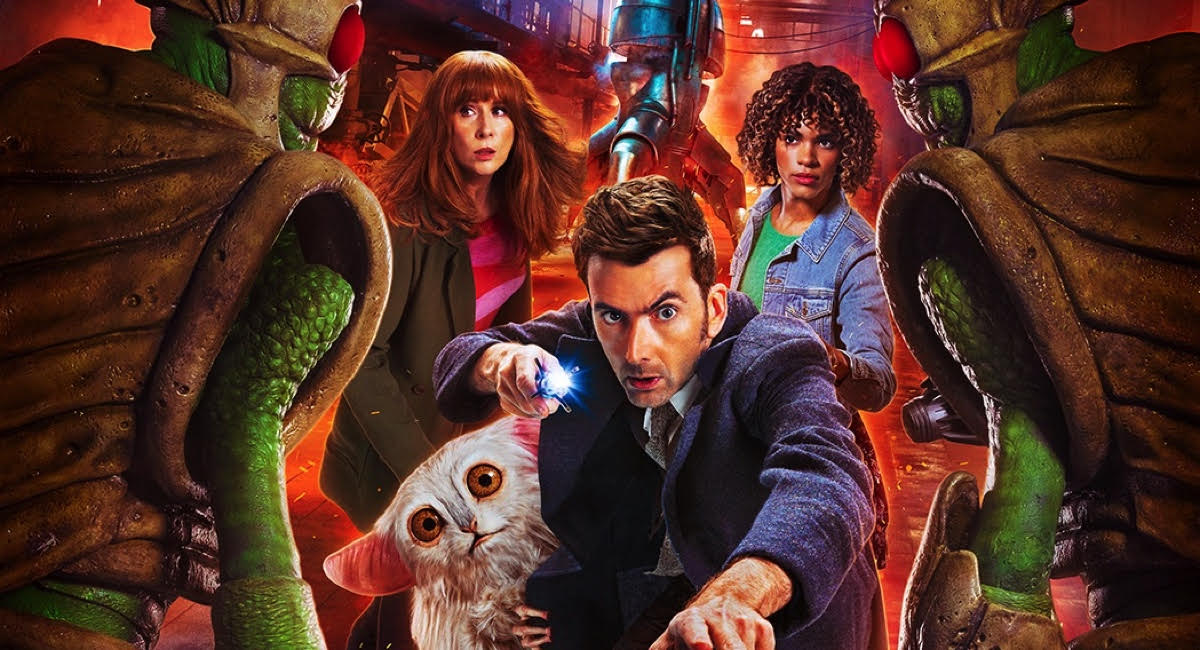
‘Doctor Who’ premieres on Disney+ beginning November 25th.



























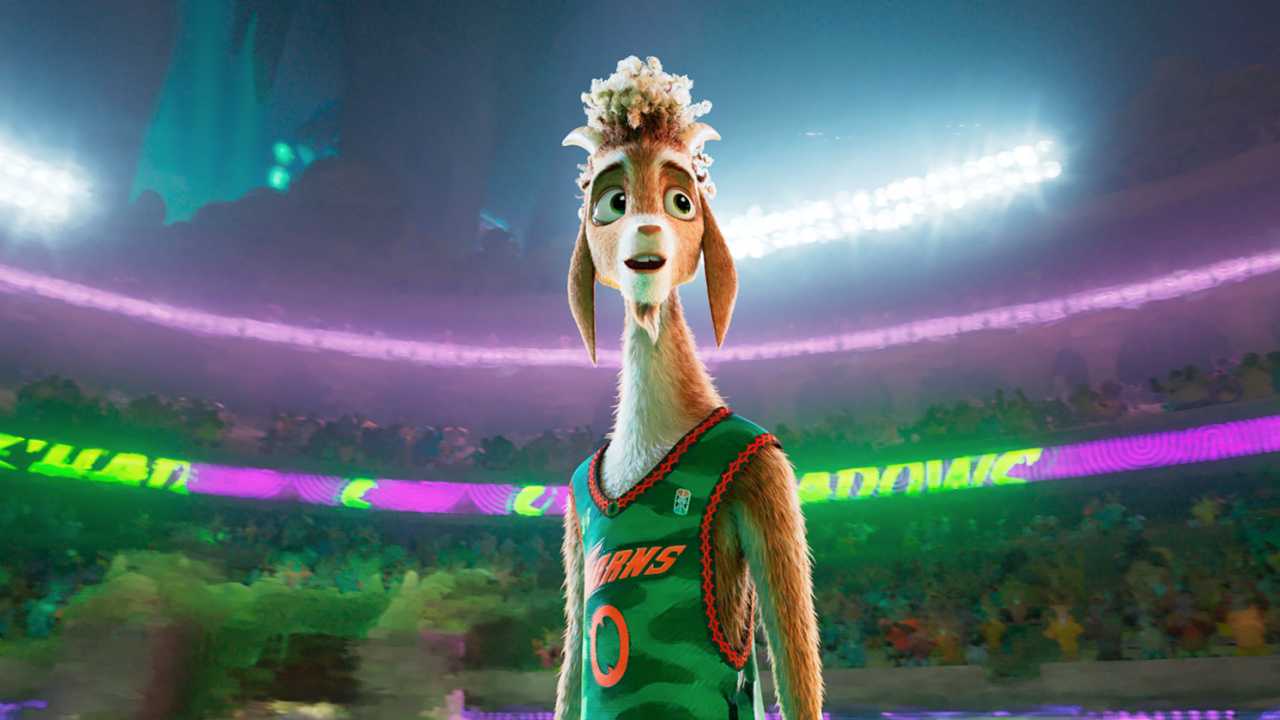
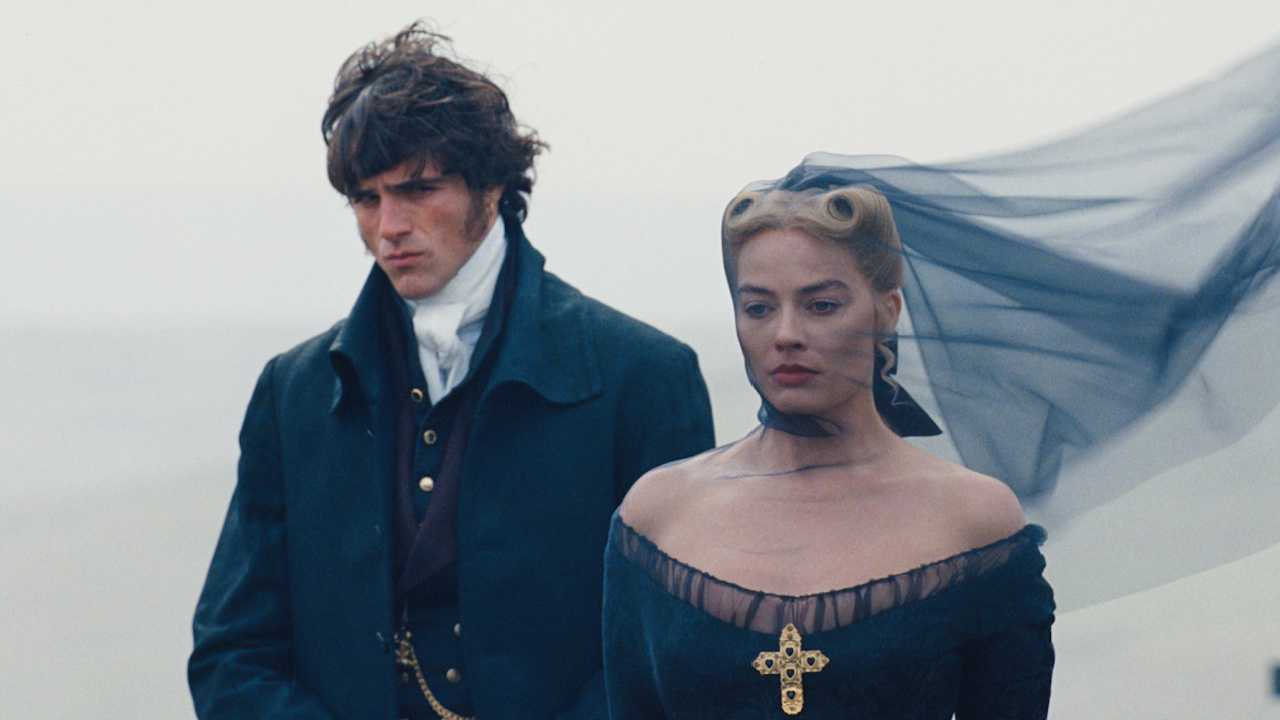
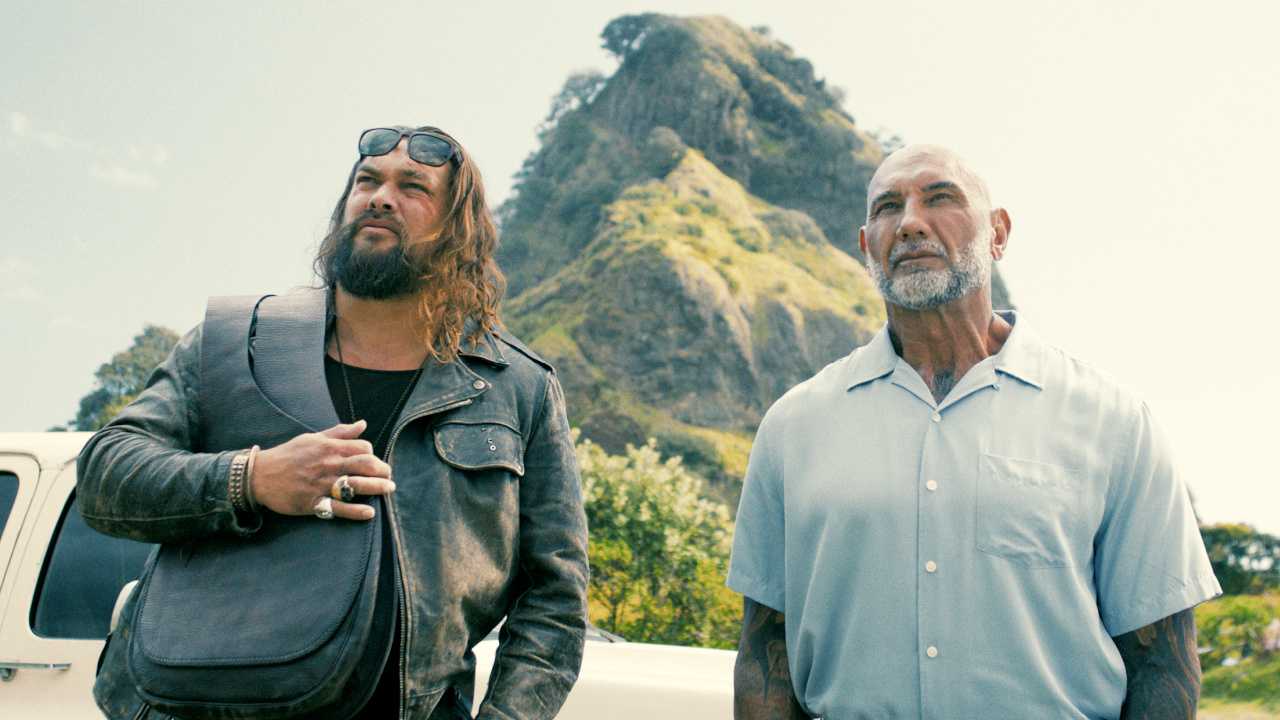
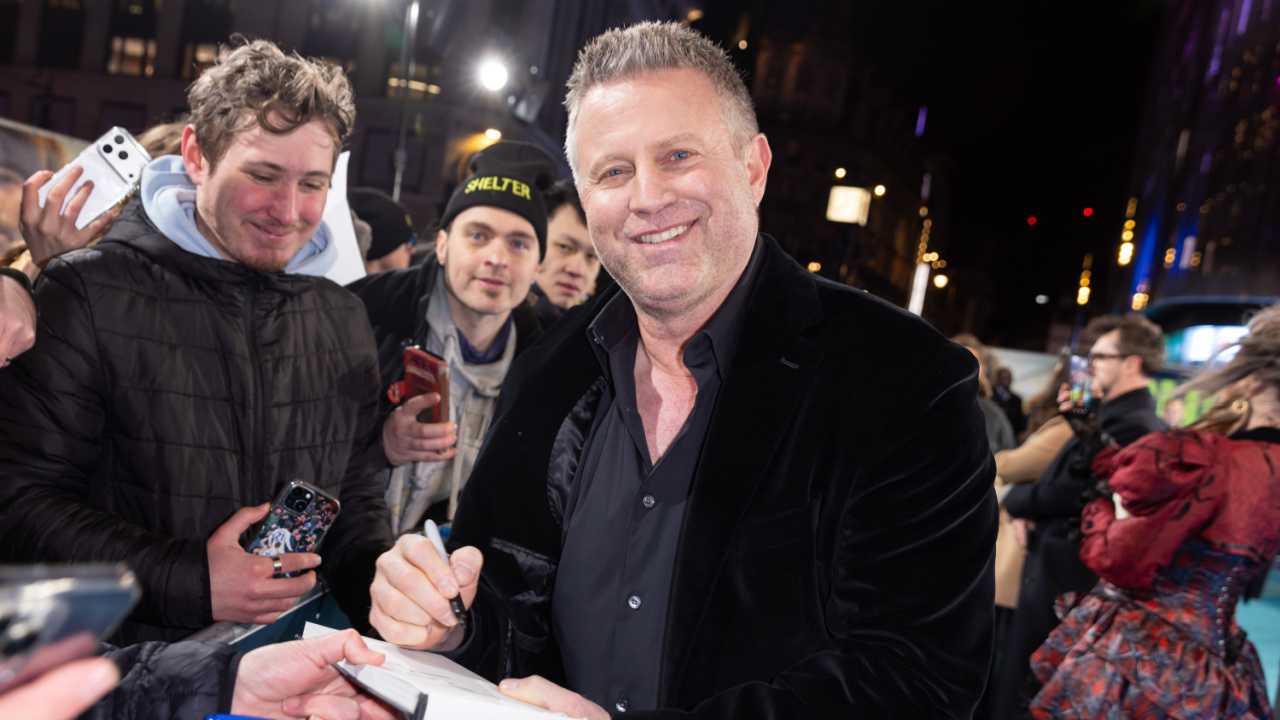
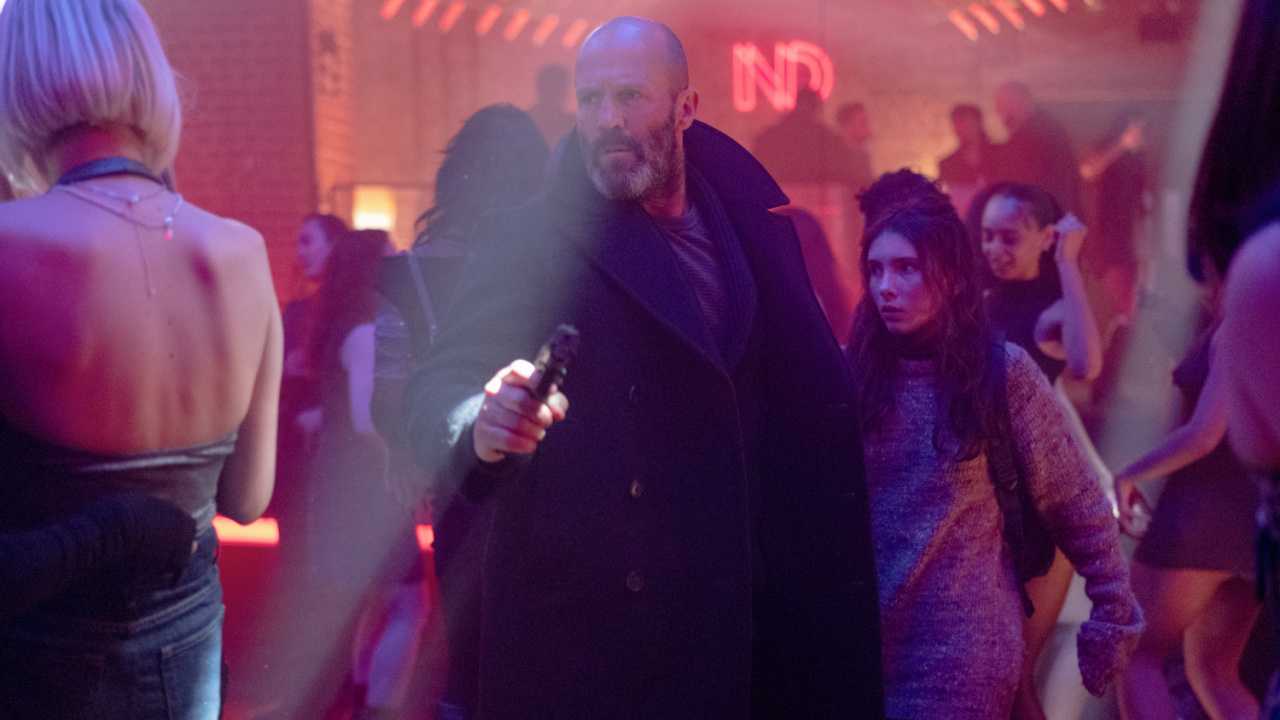
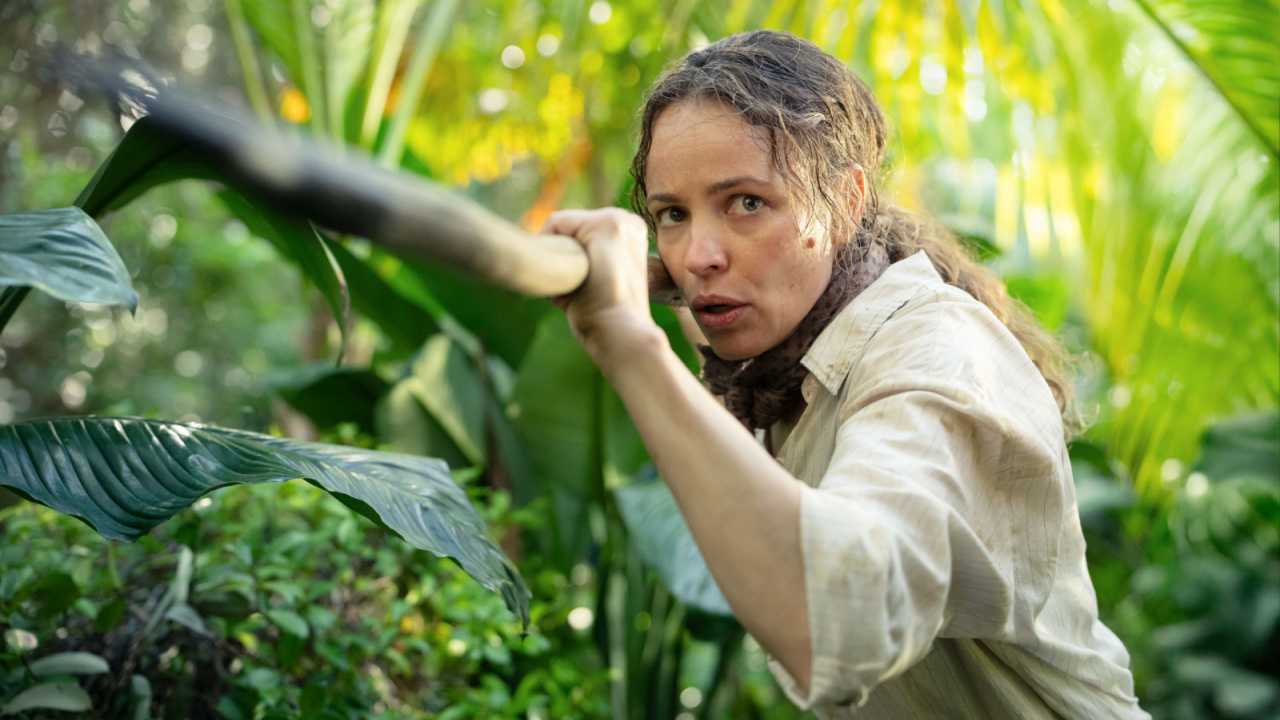


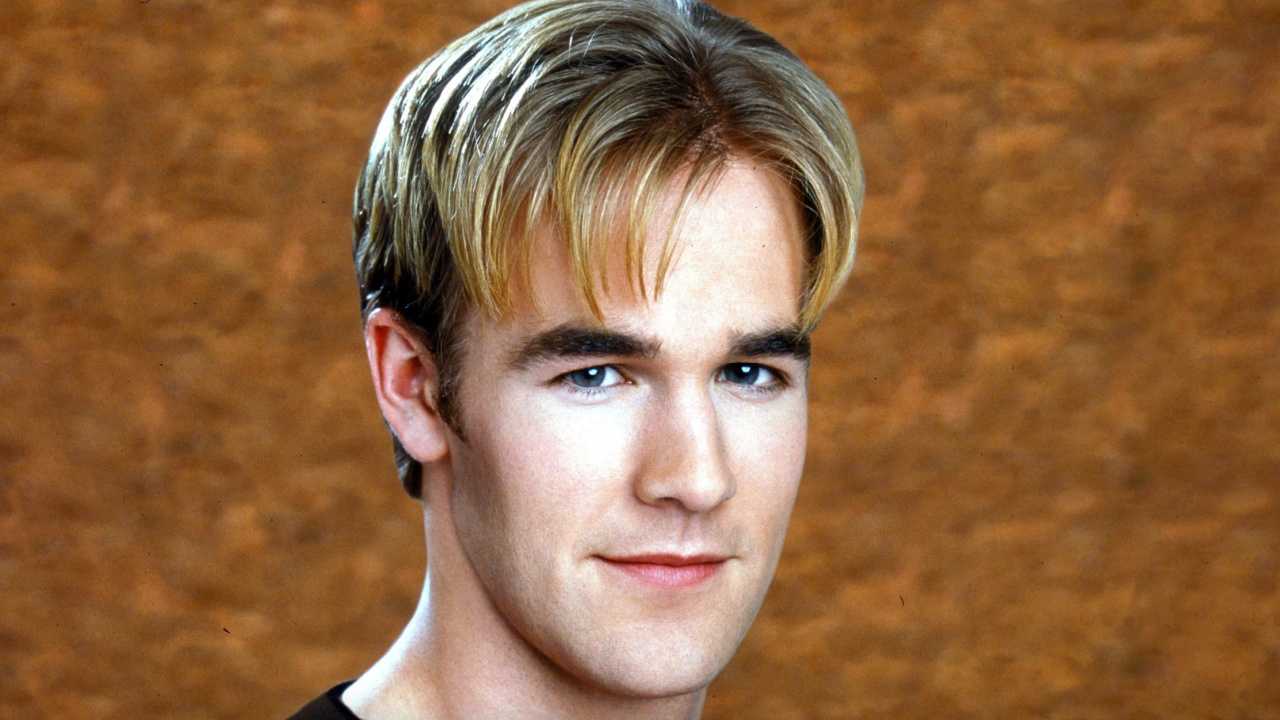

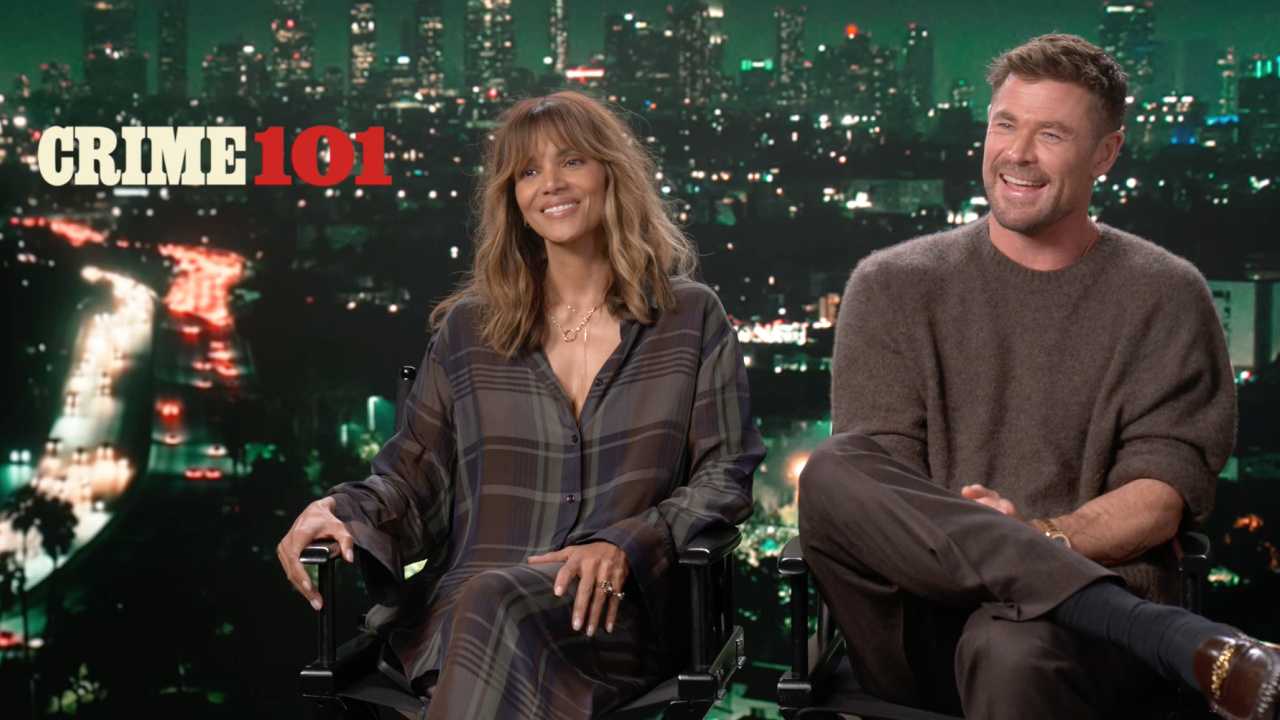
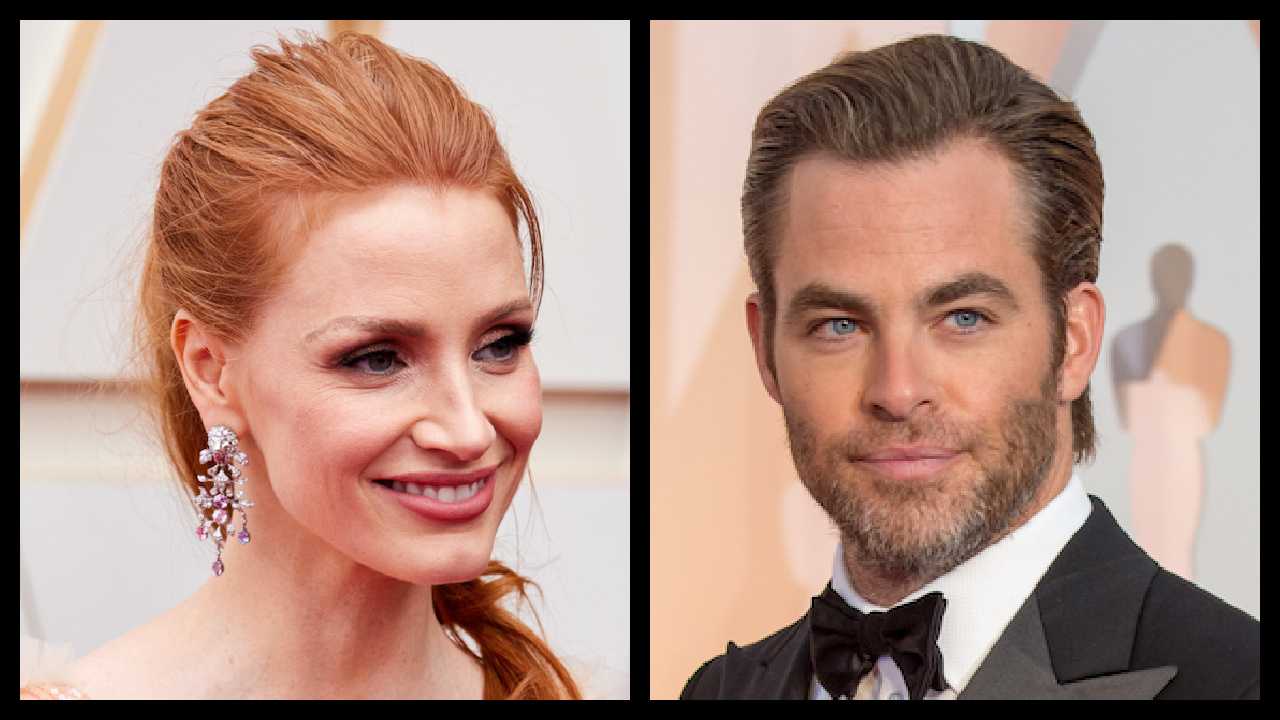
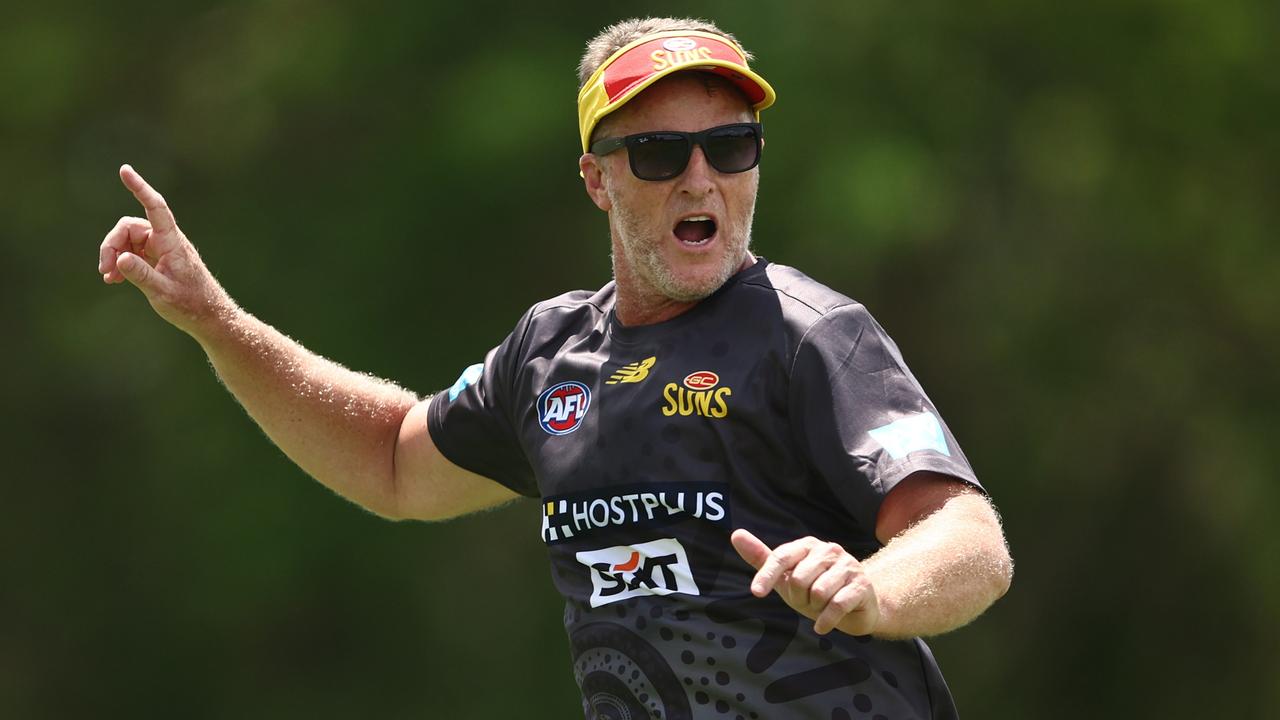



Discussion about this post